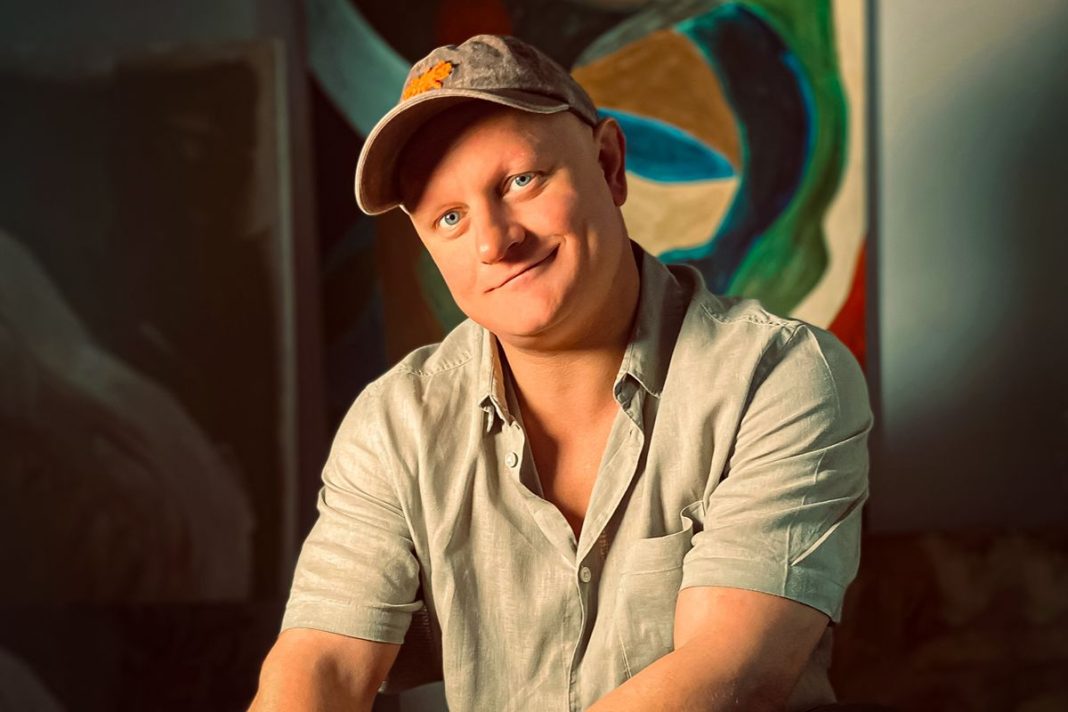Basson Laas’s journey from a farm in South Africa to stages across the country has been guided by one simple belief: a smile can change everything. Now, with his uplifting new single and cinematic video ‘Smile’ out on all major platforms, Basson reaches beyond borders to share a message of resilience and connection with listeners all over the globe. We spoke to him about the inspiration behind the song, and why one small gesture can spark a continent‑wide ripple of positivity.
EXPRESSION AFRICA: ‘Smile’ is built around the idea that a simple grin can lift even the heaviest burdens. What does the act of smiling mean to you as an artist sharing music with audiences across diverse continents and cultures?
BASSON LAAS: Like anyone else, I have had my fair share of days when the going gets tough and things look bleak, no matter how you look at it. When I am in the midst of those moments, forcing a smile seems to let my body know that it has the power to regain what I perceive to be lost. It stems from research into a phenomenon known as the ‘facial feedback hypothesis’. You could sum it up as “fake it until you feel it”.
Which artists, musical traditions, or specific experiences across our beautiful continent have influenced your songwriting or performance style – particularly on ‘Smile’ – and how did those inspirations find their way into the track?
‘Smile’ has less of an African influence than some of my other songs, such as ‘Tightly Bound’ or ‘Worth Loving’, but, as a new musician finding my voice, I am always inspired by catchy drumbeats. The beat is the heart of a song. Beyond that, our landscapes – rivers, mountains and the bush – always put me in a space of reminiscence, and that is where some of the best lyrics are captured.
Growing up on a farm in South Africa, you wrote your first songs in open fields. How has your childhood shaped the stories you tell in your music, and do you think listeners from different backgrounds connect with those roots?
The freedom of the open fields is always a reminder that life goes on at its own pace, whether you are there or not. I am therefore reminded that Someone is taking care of it all, and so far, that has been a big theme in my music.
When someone experiences ‘Smile’ – either by listening or watching the video – how would you capture its essence, so the emotion comes through, even if English isn’t their first language?
Just listening to the song, the first three verses capture those horrible feelings of despair, doubt and disconnection, which then burst into the chorus, where you can hear the cheerful change and the joy it brings. In the video, you see the actors’ expressions lighten up, shifting from being in their heads to letting go and dancing it all away.
You’ve spoken about the facial‑feedback hypothesis and the idea of “fake it ’til you feel it.” Across the communities you’ve visited and performed for – from small towns to big‑city festival stages – what moments of resilience or joy have stood out to you, and how does ‘Smile’ reflect those experiences?
Some moments of resilience were needed, especially when performing for communities where my music does not always translate to the kind of songs usually requested in pubs – things like ‘Sweet Caroline’ or other party favourites. You just bite your lip. But the real joy comes from playing to those who enjoy a more peaceful vibe and listen to the lyrics – not only of my originals but also my covers. From where I stand, I can spot someone tuning in immediately, and that is what it is all about for me.
Your music weaves acoustic guitar with piano textures and subtle production layers. Have you considered integrating traditional African instruments – such as the kora, mbira or djembe – into a reimagined version of ‘Smile’? How would you blend their unique tonal qualities with your existing sound to create a respectful, seamless fusion?
Oh, absolutely! I can already hear a playful, rhythmic version. However, I am not a kora or mbira expert, so I would leave that to the professionals. I also love the marimba and think it could be a valued addition.
With festival season ramping up how are you planning to deliver your live shows through visuals, special collaborations, or interactive elements that bring audiences into the heart of ‘Smile’s’ uplifting message?
I think it is always nice to display the lyrics – or at least some key lines – on a screen accompanied by looping visuals to help the audience understand the song. We also do a thing at the final uplifting part where our drummer, Jan‑Hendrik Labuschagne, combines clapping with the offbeat of the kick drum, encouraging folk‑style hand‑claps. It’s difficult not to crack a smile when you’re in the audience, clapping hands and keeping the rhythm.
Many young and independent musicians face resource challenges. What advice would you give them about using creativity and positivity – much like in ‘Smile’ – to break through obstacles and connect with their communities?
Basson Laas: I face that challenge every day. But I would say the most important thing is to keep showing up, practising what you love, being music, and have the patience to know that everyone’s journey is unique. Resource challenges can force you to find alternative approaches that might end up being groundbreaking.
Let’s imagine a continent‑wide celebration where ‘Smile’ is the anthem. What message would you deliver to that crowd before you play the first chord?
What a beautiful image. To be honest, in a moment like that I would probably be lost for words and just let the moment speak for itself.






